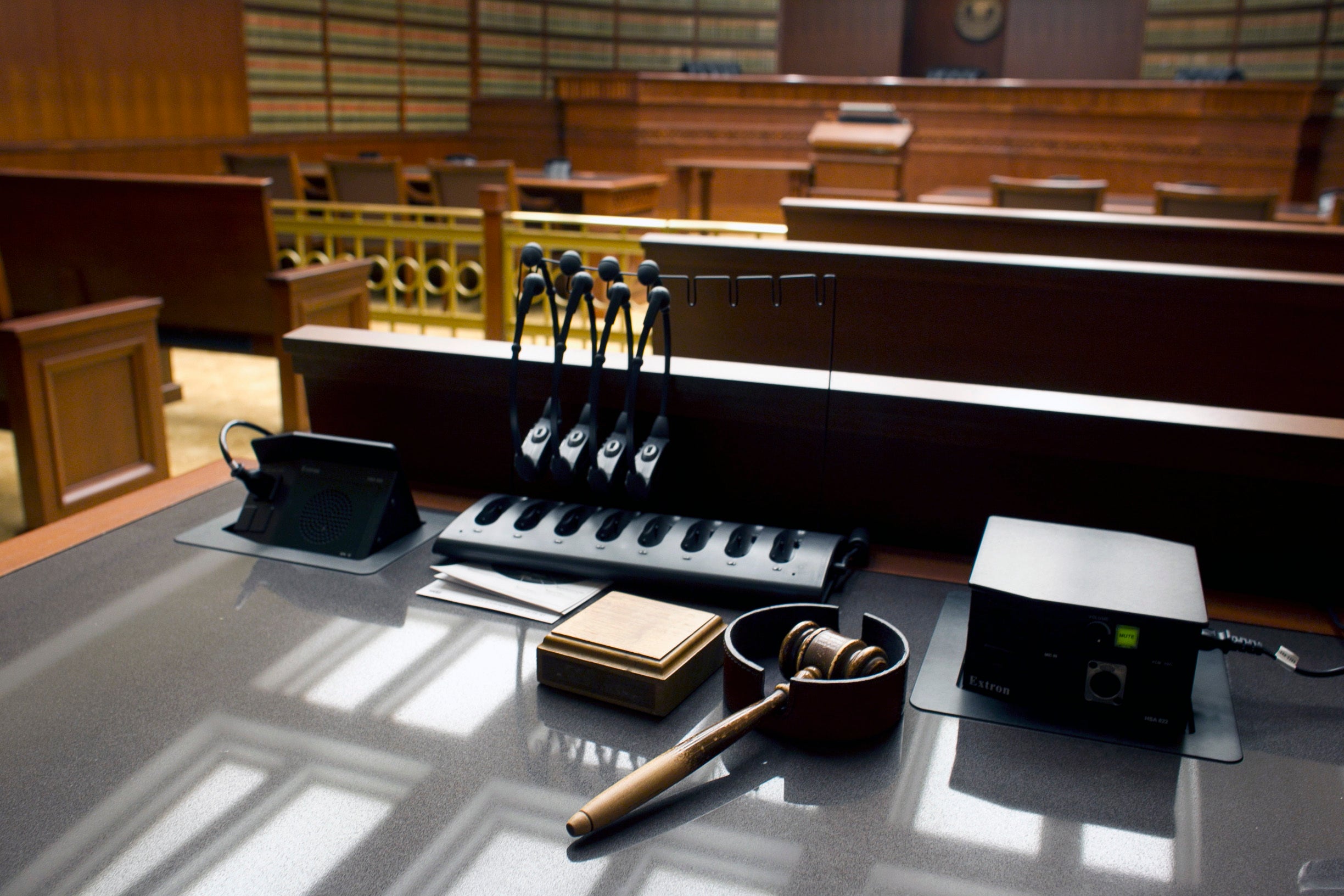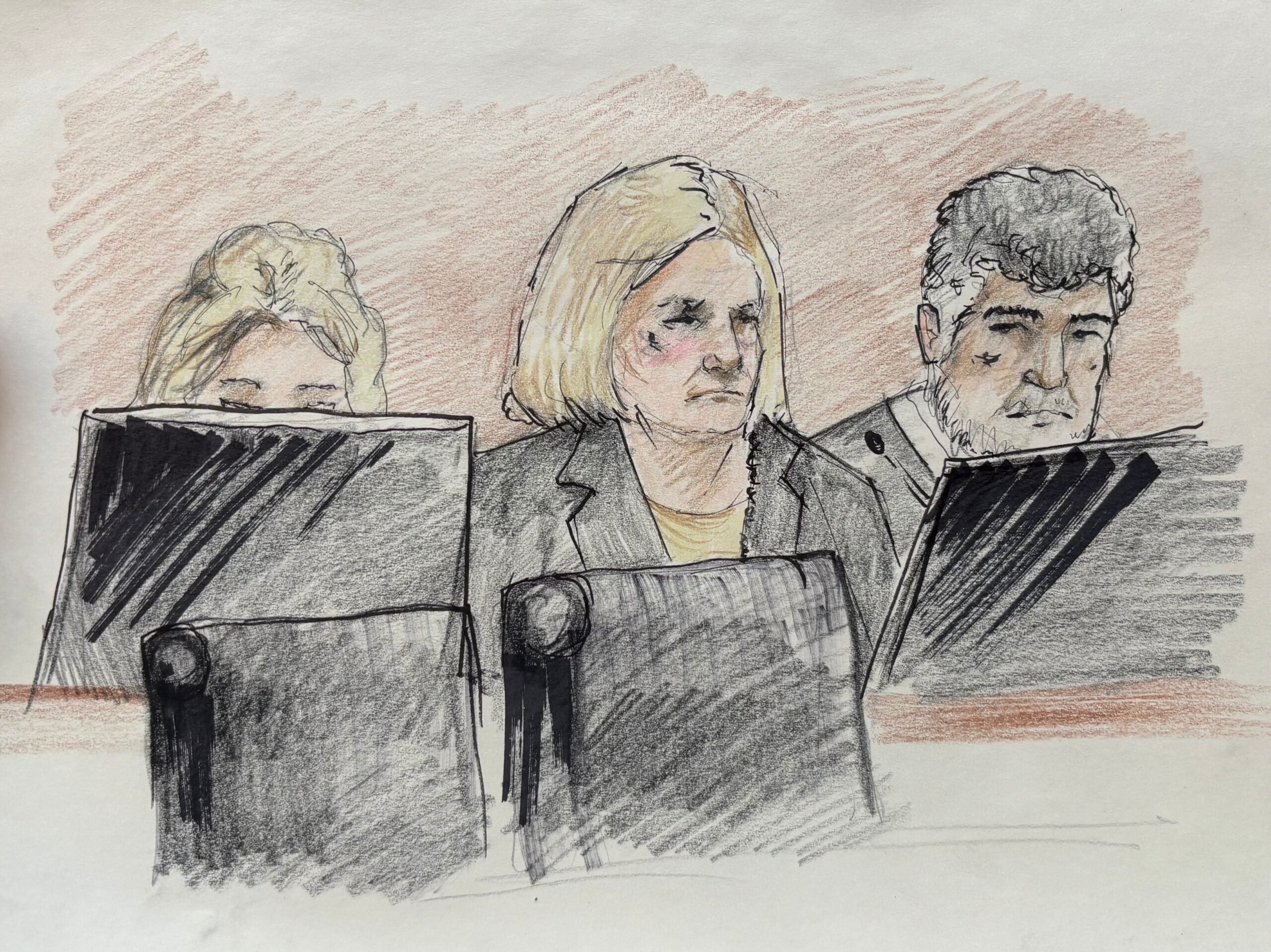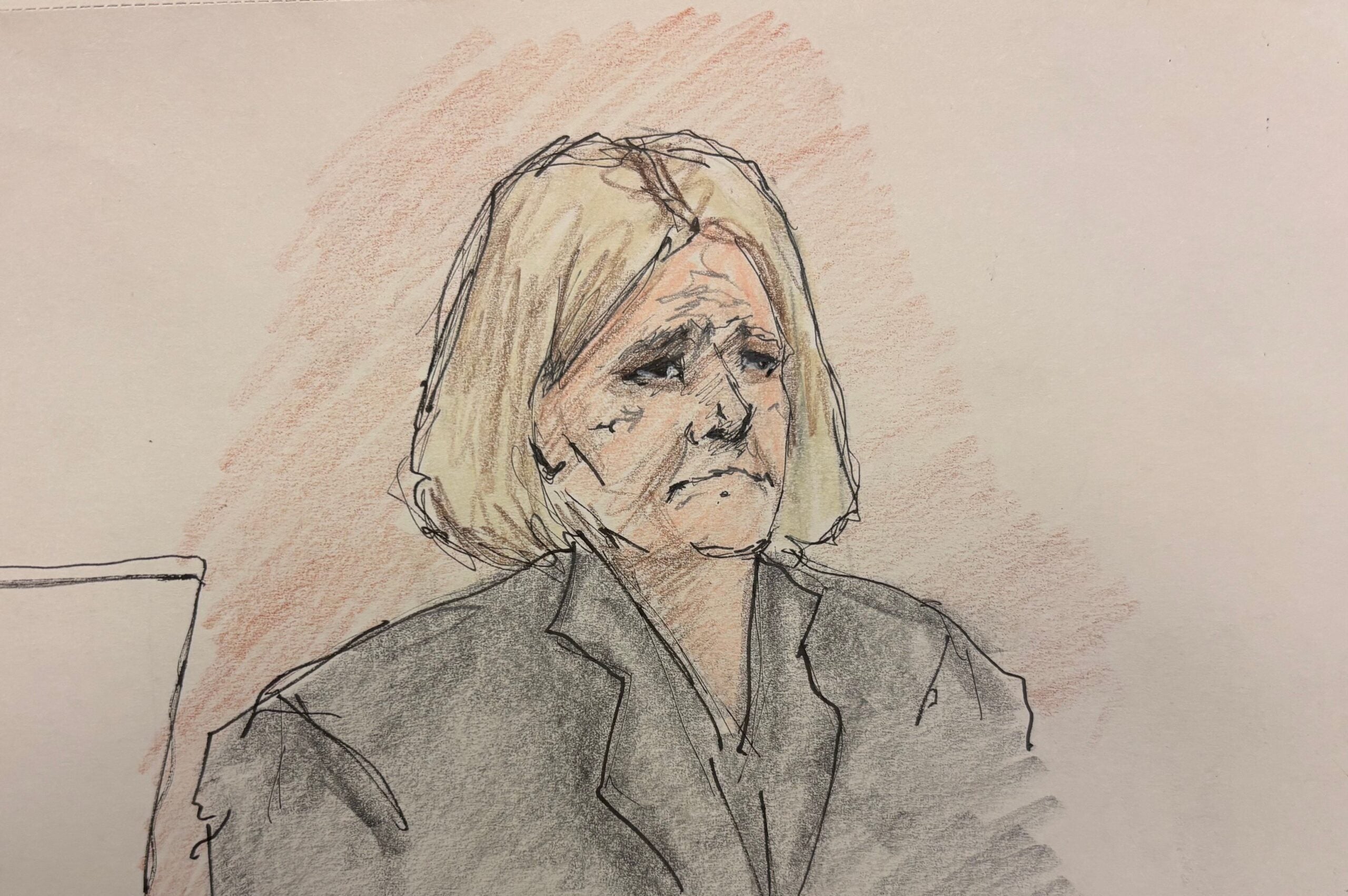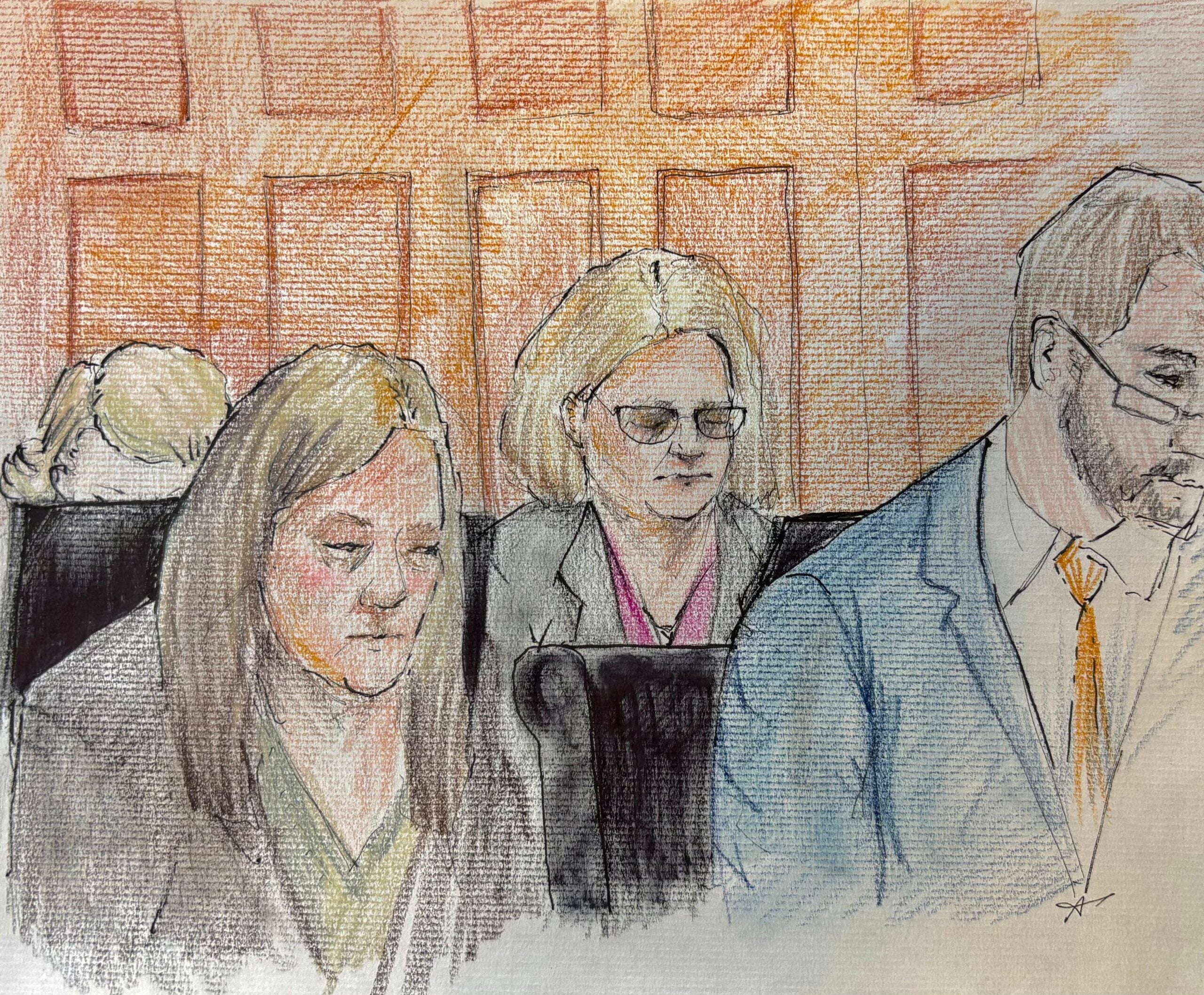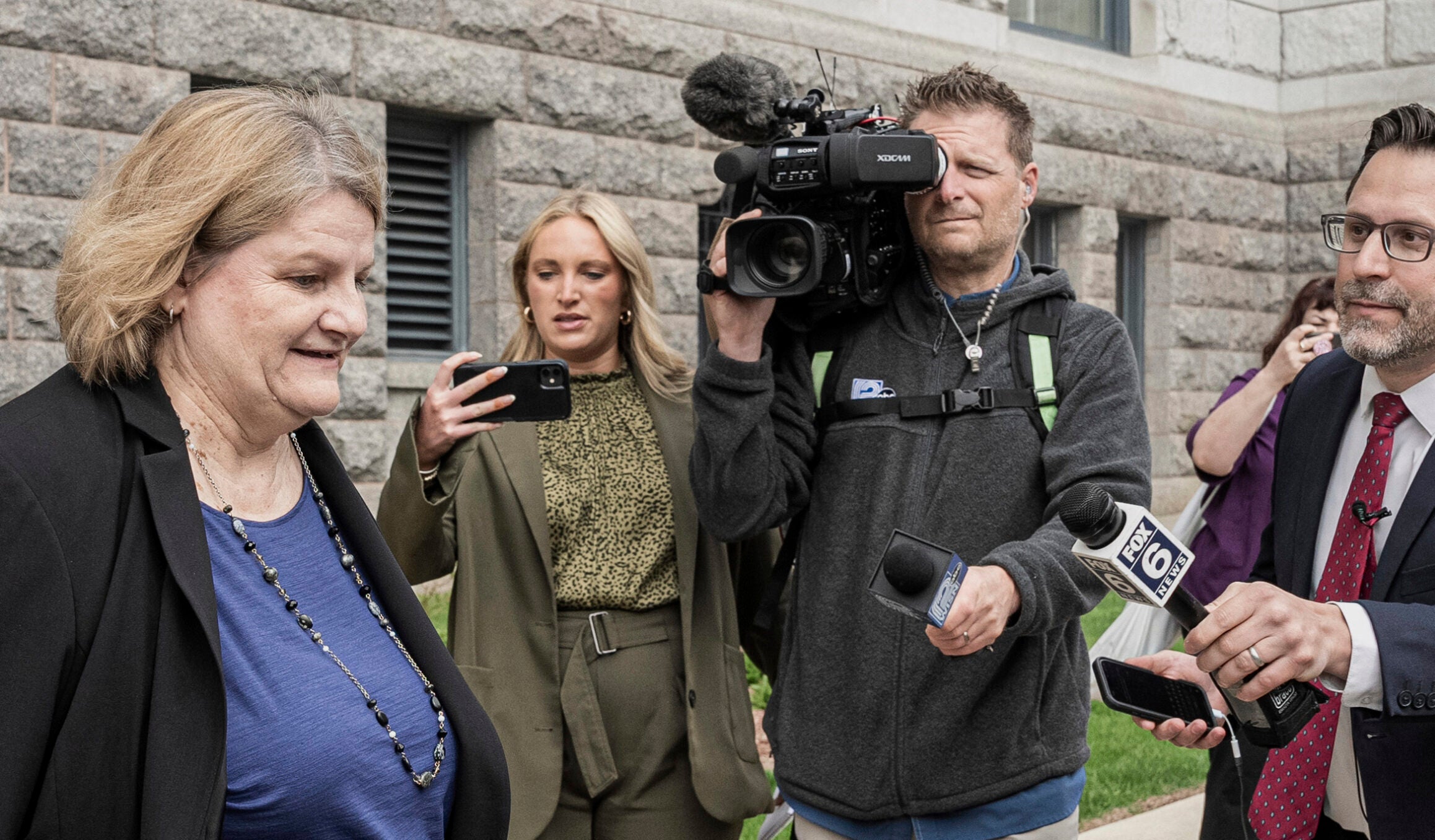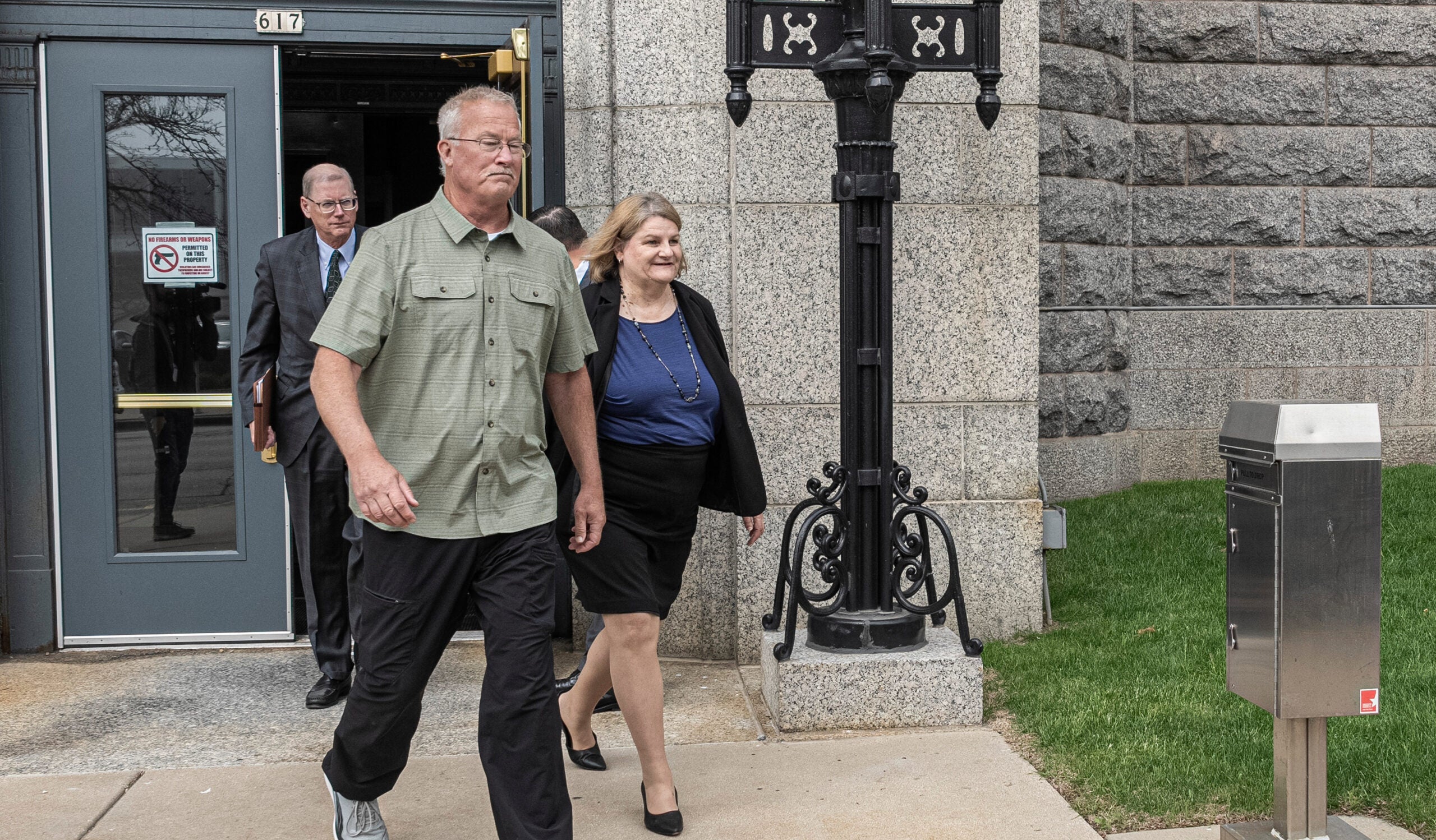The Wisconsin Supreme Court is allowing circuit courts to resume jury trials and in-person hearings as long as they create plans to reduce the risk of spreading COVID-19. Some courts are beginning to hold proceedings while most will likely take time to get up and running.
The Supreme Court suspended most in-person hearings in March and jury trials were not to be held until after May 22.
On Friday, the state’s high court said circuit courts could resume proceedings if they submitted plans for the chief judge’s approval that include requirements for face coverings of everyone present, as well as appropriate hygiene and frequent cleaning. The state has 10 judicial districts and each has a chief judge.
News with a little more humanity
WPR’s “Wisconsin Today” newsletter keeps you connected to the state you love without feeling overwhelmed. No paywall. No agenda. No corporate filter.
Bayfield County, which had confirmed three COVID-19 cases as of Tuesday, may be the first in the state to resume jury trial proceedings.
Christopher Channing, district court administrator for the state’s Tenth Judicial District, said the county’s circuit court conducted jury selection Tuesday in the Washburn High School gymnasium for an upcoming trial after developing a plan for more than a month. Jury trials often require the summons of 40 to 100 prospective jurors at once.
“(The jurors) were provided with a small bottle of hand sanitizer,” said Channing. “They all came in, they were seated in the bleachers and were appropriately distanced for the CDC guidelines.”
Bayfield County Circuit Court is screening all prospective jurors for COVID-19. Masks and gloves are being distributed, and jury rooms will be deep cleaned throughout the trial. Meals are also being provided to limit movement in and out of the courthouse.
Channing said two of 13 counties in his judicial district may have submitted plans to the chief judge so far, but others are continuing to develop them. For most, he expects it could be a minimum of two to three weeks before resuming in-person proceedings.
“We are definitely, across the state, taking safety and security of all that come into our courts very seriously,” said Channing. “And that’s why it will take some time in certain areas for them to develop their plans.”
Mary Triggiano, chief judge of the state’s First Judicial District, said it will likely take Milwaukee County Circuit Court much longer to return to full capacity due to the large case volume.
She said thousands of people pass through the courts each day during normal operations when an average of 5,400 hearings are held each week. Triggiano said that dropped to fewer than 800 hearings when most in-person proceedings were postponed.
Three of 23 criminal courts are still operating within the courthouse to hear a variety of cases, including custody matters and preliminary hearings, where attorneys and clients have been present on a limited basis. But, Triggiano said, they want to be very careful about resuming in-person proceedings.
“We have to make sure that physical distancing works. We have to make sure that we have enough PPE (personal protective equipment), including masks, for everybody,” Triggiano said.
For several weeks, she said, they’ve been working with the county and other partners on a recovery plan to resume operations safely while tracking information from health officials. Milwaukee County has the most confirmed cases of COVID-19 in the state with more than 6,500 people who have tested positive for the virus as of Tuesday.
Triggiano said they may start preparing a couple courtrooms for jury trials in the next 45 days.
“It’s going to depend a lot on our ability to physically distance in our courtrooms,” she said.
Triggiano said they expect to incorporate the Supreme Court’s mandates and many recommendations from the Wisconsin Courts COVID-19 Task Force, which issued its final report May 15. She said the recommendations include examining sites outside of the courthouse where they may be able to conduct business.
Triggiano said they’re anxious to get back to business as usual as hundreds of criminal cases are coming in with requests for jury trials, as well as hundreds of requests for a speedy trial for those currently behind bars.
“But, we also want to be smart about it, and we also care about people,” said Triggiano. “Not just the courthouse employees and stakeholders, but the lawyers who come in and the public who comes to the courthouse every day. We do not want to be the reason people contract the virus or spread the virus.”
Supreme Court Justices Rebecca Bradley and Daniel Kelly opposed the court’s order Friday, as well as earlier decisions to suspend proceedings, saying it infringes on individuals’ constitutional rights. Justices Annette Ziegler and Brian Hagedorn concurred with Friday’s order, saying they prefer it provide “more flexibility” to officials determining the best safety precautions for their counties.
Wisconsin Public Radio, © Copyright 2025, Board of Regents of the University of Wisconsin System and Wisconsin Educational Communications Board.

